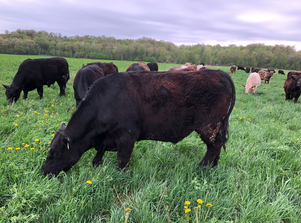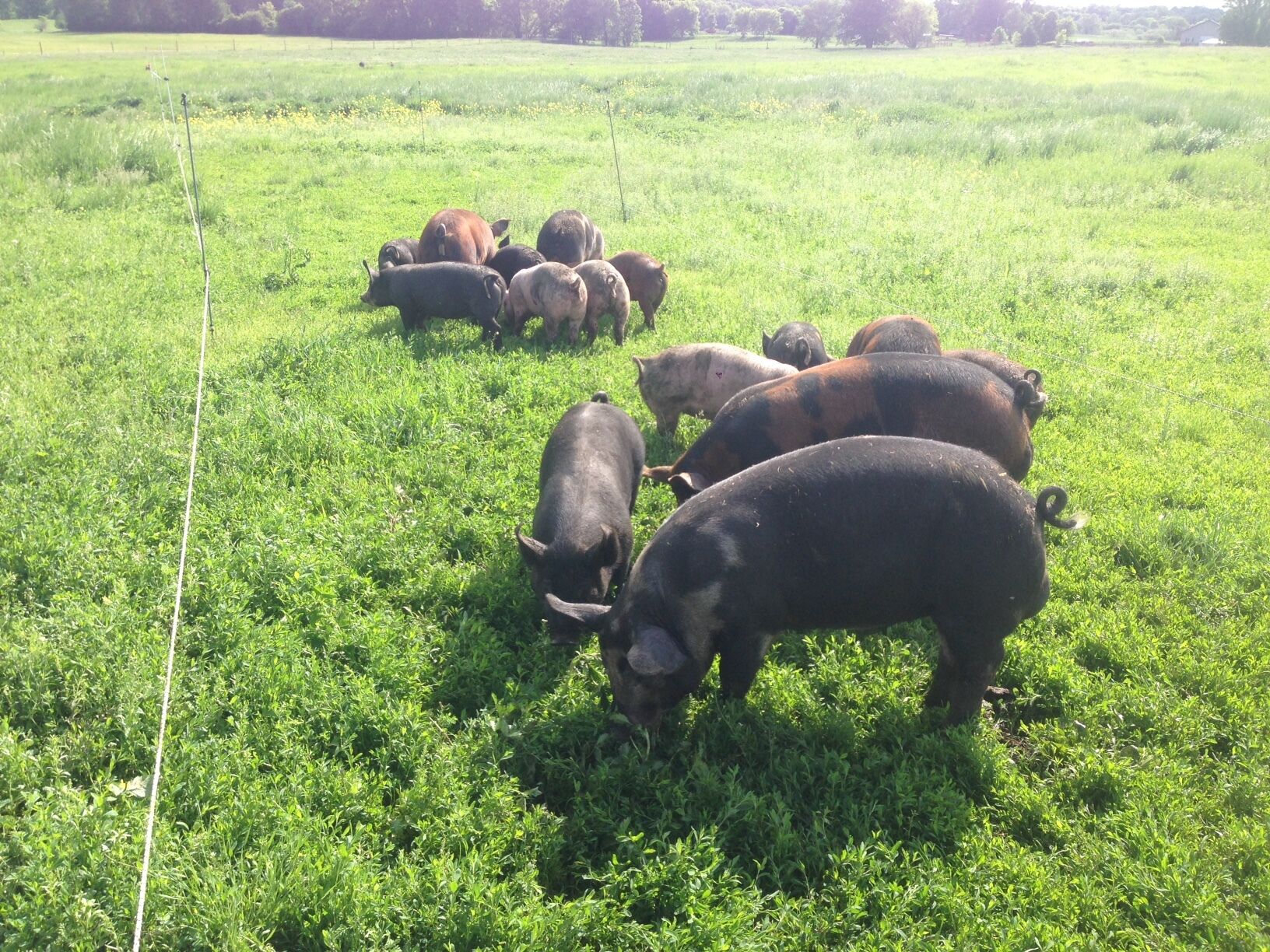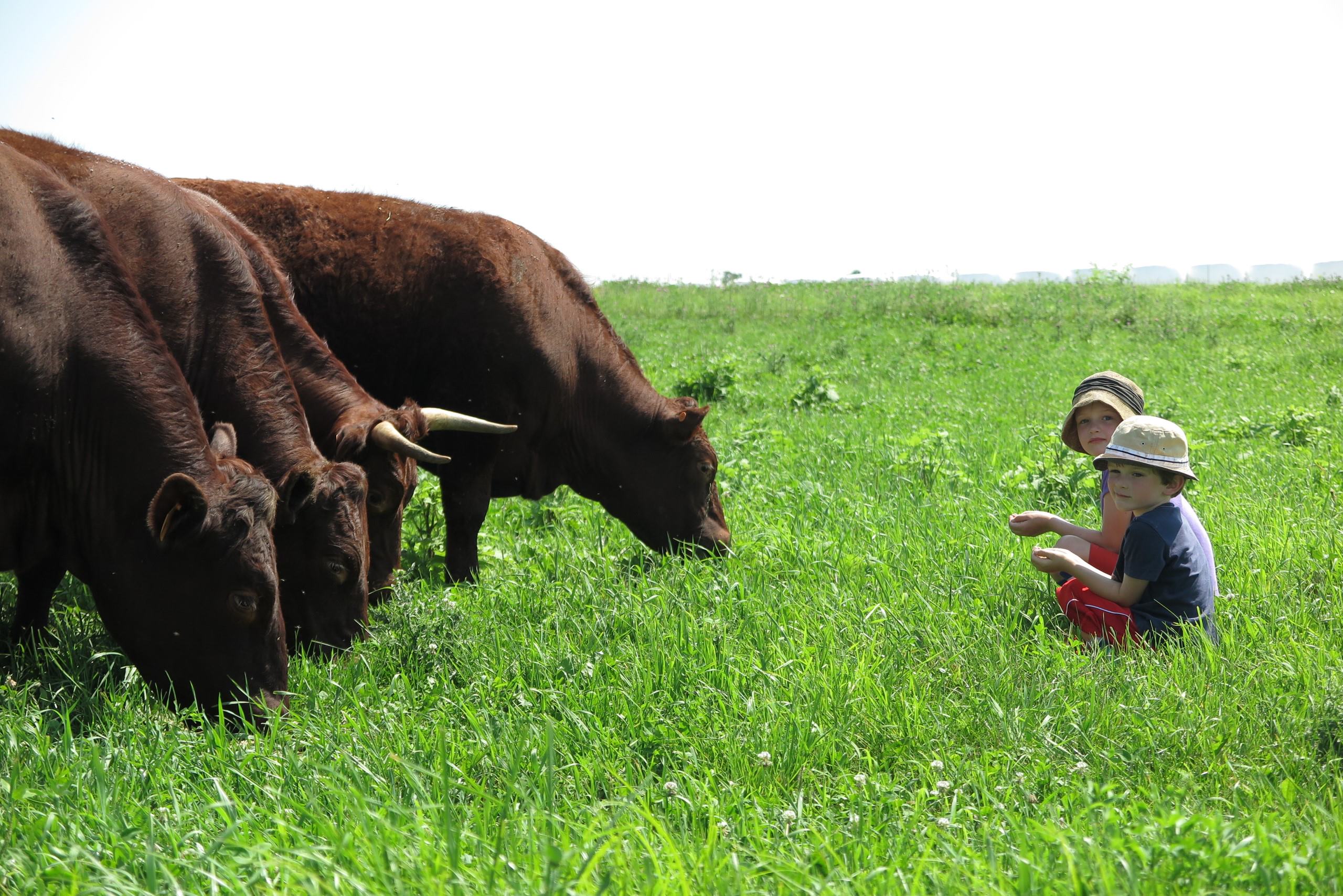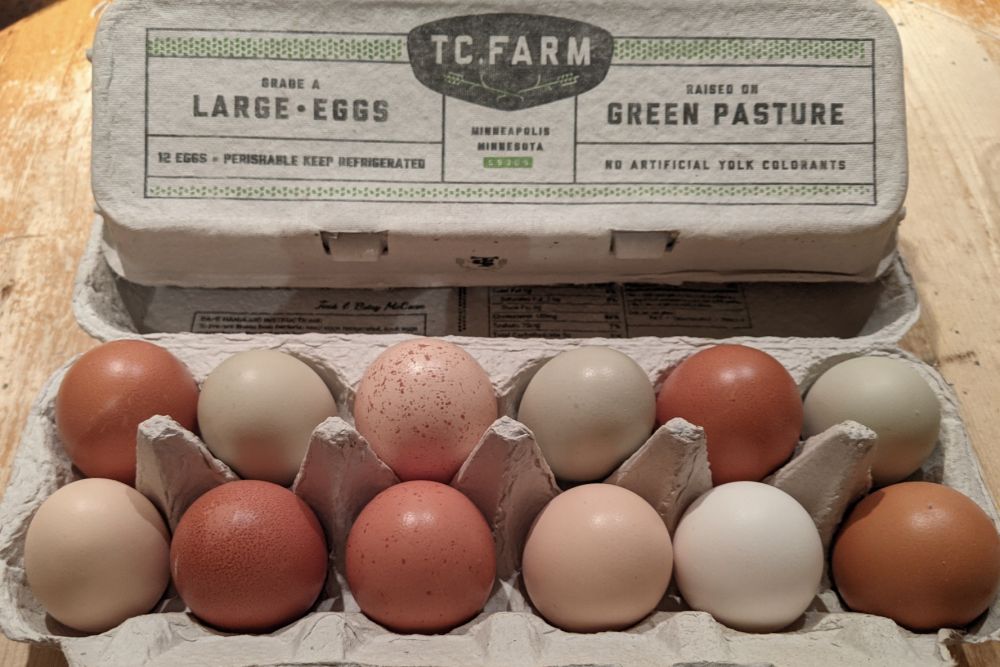Posted by Annie Rowland on Jun 12th 2024
Rotational Grazing 101: How TC Farm Meat Makes a Positive Impact
Did you know the way we graze our animals has a net negative greenhouse impact? That's right- It's actually good for the climate!
Rotational grazing is a sustainable farming practice where livestock are frequently rotated to different areas of pasture to prevent overgrazing and allow the plants & soil to recover.
Rotational grazing methods help the environment in a number ways:
- Sequester carbon
- Provide habitat for native plants & species
- Conserve water
- Improve soil health
- Plus, it's better for the animals!
Learn more about the benefits of rotational grazing below!
All TC Farm animals are raised on pasture year round.
Finding Truly Pasture Raised Meat is Not Easy!
Managing a rotational grazing practice is much more labor intensive & expensive than conventional methods, which is one of the reasons it's so hard to find truly pasture raised meat at the store.
It's almost impossible for humane, grass-raised meats to compete in the grocery store because intentional loopholes in regulations allow meat to be labeled as grass-fed even if it was raised in a crowded feedlot and fed a variety of non-grass items.
In the case of dairy, the vast majority of grocery items labeled as 'grass fed' are actually fed corn and soy due to these loopholes.
What can you do ensure you have well raised meats?
If you aren't getting meat directly from a farm, be sure to ask your grocer questions, even at your local co-op:
"Is 100% of this pork or beef actually from the farmer depicted on the photos over the meat case?"
"Are they raised outside on green pasture?"
"Is the feed organic?"
It might feel awkward to ask questions, but if we want to make more of our meat raised better, every grocery store needs to hear from its customers what attributes are important to you.
Take the time to ask the question and it will help improve the food system; the locally operated grocers will start to source more of their meats from the farmers on their walls and less from confinement operations.
TC Farm's meat prices not only reflect the quality of our animals and the positive impact that our farming has on the environment, but also provide a fair wage to our farmers for the extra effort they put into raising our food.
Our members' commitment to sustainably raised foods is what keeps our farms & rotational grazing methods going!
Whether it's monarch butterflies enjoying a patch of milkweek, pollinators buzzing about, or even birds laying nests in protected nooks within the vegetation, our pastures are full of life and buzzing with activity!
We never use chemical pesticides or herbicides and welcome the growth of native plants as a way to create a safe habitat for many species and improve the health of the soil.
Through careful rotational grazing, plants & grasses can recover throughout the season and come back even stronger each year.
Our thriving pasutes are a sanctuary for native species and TC Farm animals are happy to have the company as they graze through the pasture!
Healthy growing pastures are able to collect and store more rainwater, helping to keep our fields lush and green even when we have drought conditions.
Now, with all the rain this spring, we're happy to see our pastures are soaking it all in and saving it for a dryer time.
Most conventional fields don't have the organic matter ours do and need excessive tiles to drain off the rain. This floods local waterways with excessive nutrients & pollutants that cause harm to the local ecosystem and beyond. Those conventional fields will then need to be irrigated or be parched when the rains stop. With climate change, this cycle of excessive rain and then no rain is more and more common.
The healthy soil in our pastures acts as a sponge for rainwater and lush grasses and plants act as a cooling blanket that reduces moisture from escaping.
The health & well-being of our animals is extremely important to us, which is why we raise them on pasture.
Cows raised on conventional and even organic feedlots are often fed things like discarded produce, distiller grains (waste from ethanol plants), and sometimes much worse. These foods aren't healthy for the cows and neither is the stressful, crowded feedlot environment. Keeping animals in close confinement also leads to a reliance on antibiotics and pesticides.
A lot of store-bought ground beef (especially grass fed) come from retired dairy cows and not the healthy, quality steer you'd imagine.
Our rotational grazing methods and lush green pastures make for happy, healthy animals and the most delicious, ethically raised meat you've ever tasted!
Craig raises beef for TC Farm in Southeast, Minnesota. He's got some of the healthiest, most well-managed pastures our Founding Farmer Jack has ever seen!
For Craig the most rewarding aspect of rotational grazing is how healthy pastures are able to soak up excess rainwater and hold onto it through a dry season. He's noticed that many conventional farms in his area struggled with the drought last year, but his fields maintained moisture even in the face of an excessive dry season.
Craig’s commitment to rotational grazing means his expenses are much higher than most beef farmers. Rotational grazing requires more fencing and hands-on management to move the cows through pasture. As with other areas of the economy, Craig's expenses have increased drastically in recent years. Calf prices are insane right now, diesel prices have nearly doubled, and mineral and salt prices are also up. He is able to grow his own feed right on the farm where his cows graze, which helps him avoid having to buy expensive hay and helps reduce costs for our members.
While many other farms use shortcuts to save money, Craig remains committed to farming sustainably and rotationally grazing his cows.









